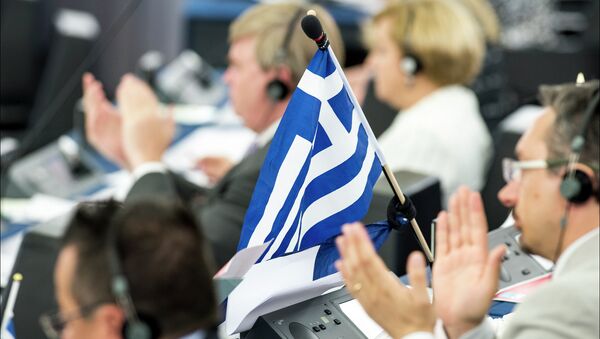Two weeks ahead of the Greek general election on September 20, Schultz stepped into what is already an extremely uneasy relationship between Athens and its creditors, who have just signed up Greece to an even more severe round of austerity measures than the Greeks rejected in July.
This request will be discussed at the next Conference of Presidents of the European Parliament @tsipras_eu @PrimeministerGR #Greece
— EP President (@EP_President) August 19, 2015
Schultz said that he expected to have a discussion with European Commission President Jean-Claude Juncker on raising the European Parliament's level of involvement in the third bailout agreement and rescue program.
His intervention came after Greece's former Prime Minister Alexis Tsipras, who asked that the European Parliament be involved as a "fifth player" among the creditors who include the European Commission, the European Central Bank and the International Monetary Fund (IMF) – the so-called ‘Troika’ as well as Greece itself.
This morning I spoke with PM Tsipras. I confirm he wrote to me asking EP involvement in review process of implementation of loan agreement
— EP President (@EP_President) August 19, 2015
Tsipras wrote to Schultz calling for "the direct and full involvement of the European Parliament in the regular review process regarding the implementation of the loan agreement".
Feather Ruffled
Tspiras’ suggestion may ruffle a few feathers in the corridors of Athens, as many civil servants and ministers are already unhappy about the level of scrutiny they are being put under as part of the bailout deal.
As a pre-requisite of the third bailout talks beginning, Greece was forced to pass legislation on tax and pension reform, as well as other issues.
These included "streamlining the VAT system and broadening the tax base to increase revenue" and "up-front measures to improve long-term sustainability of the pension system as part of a comprehensive pension reform program".
But the Troika have also demanded access to many of Greece’s ministries to check on progress in implementing the measures – a level of scrutiny many in Greece believe amounts to interference in the affairs of a sovereign state.
Already the Troika has itself been split, with the IMF stating that it believed the conditions of the third bailout, agreed in mid-August were "unsustainable". Meanwhile, it remains to be seen whether Tsipras’ invitation for the European Parliament to become more involved will be greeted with joy by whoever wins the election on September 20 – which may not be Tsipras after a fall in support for his party.



